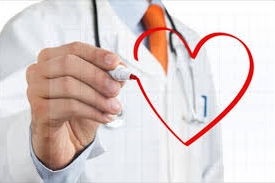Cancer prevention: 7 tips to reduce your risk
3. Maintain a healthy weight and be physically active

Maintaining a healthy weight might lower the risk of various types of cancer, including cancer of the breast, prostate, lung, colon and kidney. Physical activity counts, too. In addition to helping you control your weight, physical activity on its own might lower the risk of breast cancer and colon cancer. Adults who participate in any amount of physical activity gain some health benefits. But for substantial health benefits, strive to get at least 150 minutes a week of moderate aerobic activity or 75 minutes a week of vigorous aerobic physical activity. You can also do a combination of moderate and vigorous activity. As a general goal, include at least 30 minutes of physical activity in your daily routine — and if you can do more, even better.
4. Protect yourself from the sun Skin cancer is one of the most common kinds of cancer — and one of the most preventable. Try these tips:
◉ Avoid midday sun. Stay out of the sun between 10 a.m. and 4 p.m., when the sun's rays are strongest.
◉ Stay in the shade. When you're outdoors, stay in the shade as much as possible. Sunglasses and a broad-brimmed hat help, too.
◉ Cover exposed areas. Wear tightly woven, loosefitting clothing that covers as much of your skin as possible. Opt for bright or dark colors, which reflect more ultraviolet radiation than pastels or bleached cotton.
◉ Don't skimp on sunscreen. Use generous amounts of sunscreen when you're outdoors, and reapply often.
◉ Avoid tanning beds and sunlamps. These are just as damaging as natural sunlight.
5. Get immunized
Cancer prevention includes protection from certain viral infections. Talk to your doctor about immunization against:
◉ Hepatitis B. Hepatitis B can increase the risk of developing liver cancer. The hepatitis B vaccine is recommended for certain high-risk adults — such as adults who are sexually active but not in a mutually monogamous relationship, people with sexually transmitted infections, intravenous drug users, men who have sex with men, and health care or public safety workers who might be exposed to infected blood or body fluids.
◉Human papillomavirus (HPV). HPV is a sexually transmitted virus that can lead to cervical and other genital cancers as well as squamous cell cancers of the head and neck. The HPV vaccine is recommended for girls and boys ages 11 and 12. It is also available to both men and women age 26 or younger who didn't have the vaccine as adolescents.

